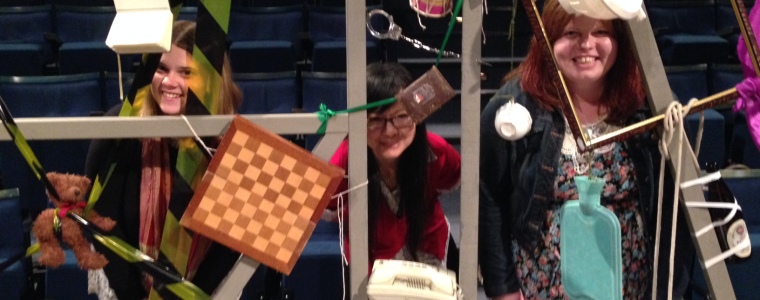Today, UCU are foregrounding their campaign against casualisation of university teaching in their ‘stamp out casual contracts‘ day of action (you can find their newsletter here). A substantial part of their campaign, as well as the more general campaign by trade unions against zero hours contracts, emphasises the psychological as well as the financial burden placed on employees by insecure and uncertain work.
We may all have experienced the uncertainty of trying to find a job in order to pay our bills and achieve a decent standard of living, but when you have found employment, and that remains no guarantee of keeping the wolf from the door, workers remain in a state of ongoing anxiety and must devote a substantial proportion of their efforts to looking for additional work or sources of income. There is a fine line between claiming such tactics encourage entrepreneurial behaviour and promoting extreme exploitation as firms attempt to evade their moral responsibilities towards employees.
Such arguments sometimes fall upon deaf ears, after all those of us earning enough to succeed by such work may see little harm in the arrangements. But in doing so we are often inclined to overlook our own privilege in health, wealth and the unpaid support of family or friends. With individuals as with corporations, our successes are never truly our own, they rely upon the supportive and nurturing work of others who came before us to provide us with education, nurse us through sickness and protect us from tasks of which we were not yet capable. It is also easy to over-simplistically compare our situation with those of other countries which exhibit wildly different taxation arrangements with significant consequences for quality of life.
It is worth noting that our moral actions and sentiments promote collective productivity and sustainable lifestyles, while the egoism of putting the individual first often comes at the cost of long term prosperity and happiness. In the International Labour Organization’s measurement factors of decent work, job security is a notable factor contributing to the dignity of workers. This is not because job security is a marker of status in society, but rather because of our interdependence as human beings. Having some security in our work and income allows us to enter into supportive relationships with others; to support our parents or our children, to make plans for our future, to develop time for our education or to give something back to our communities. From this, many more than the employees of one company benefit from the stability, and such organizations benefit from peaceful, stable markets in return. Workers are also less fearful, and are more likely to raise issues with their employer, which though it may reduce productivity in the short term, help to develop a better company, better products and better relationships within that company.
In the case of academic work, the pursuit of knowledge is not assisted by anxiety, fear and a reticence to speak out promoted by casual contracts. It may not seem immediately apparent to students surrounded by beautiful new buildings and high-tech equipment, but without the dignity and wellbeing of securely employed staff, these are a poor measure of educational quality. The best teacher or mentor, advisor or adminstrator you will ever need, might be that person who wasn’t able to keep up with the three jobs worth of work they were only being paid one salary to perform. They might be the person sleeping in their car between lectures because they stayed up all night marking exams. They might be the person who becomes unable to get to work because they simply couldn’t make ends meet. A small mistake might undermine your learning due to no hours being paid to update your teacher’s training in the library, or your administrator’s knowledge of new software. And as a result, they might not be there for you, at their best when you need them most.
We are much more interdependent than an uncertain transaction of time would have you believe. Stamp out zero hours contracts; not only for worker’s dignity, but in recognition of our worth together, as more than the sum of our parts.



